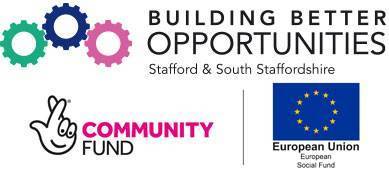A Guide To Universal Credit Benefits
Universal Credit is a government welfare support scheme designed to help individuals with their living costs. It was first reduced in October 2013 and was progressively rolled out throughout the country. Full-service roll out of universal credit was completed in December 2018. This means that any new claim for the majority of benefits is now a Universal Credit claim.
What is Universal Credit?
Universal Credit has replaced a number of benefits you are probably familiar with. These are:
- Child Tax Credits
- Housing Benefit
- Income Support
- Income-based jobseeker’s allowance (JSA)
- Income-related employment and support allowance (ESA)
- Working tax credits
I’m still receiving those benefits,what do I do?
If you still get any of the above benefits (such as JSA or working tax credits) you do not need to do anything at the moment. However, should your circumstances change it is likely that you will have to reapply for Universal Credit instead.
Who is eligible for Universal Credit?
Universal Credit payments are based on a number of factors and certain things may affect how much you can claim.
You may be able to claim for Universal Credit if:
- You are on a low income
- You are out of work
- You are over 18
- You are under State Pension age
- You and your partner have no more than £16,000 in savings between you
- You live in the UK
There are some exceptions and conditions which you should be aware of. For example, if you live with your partner their income and savings will be taken into account as part of your claim.
As well as this, if you are over 18 and in training or studying full time, you’re aged 16/17, or you are in a couple and one of you is State Pension age, there are some circumstances where you may be able to make a claim for Universal Credit.
How much do I get with Universal Credit?
The amount of Universal Credit you receive will depend on your claim. It is made up of a mixture that includes a ‘standard allowance’ and any other extra amounts that may apply. For example, you may be eligible for extra if you have children, have a disability or health condition that stops you from working, or you need help paying your rent.
The monthly ‘Standard allowance’ for Universal Credit is as follows:
- If you are single and under 25 – £342.72
- If you are single and 25 or over – £409.89
- In a couple and both aged under 25 – £488.59 (per couple)
- In a couple and both aged over 25 – £594.04 (per couple)
If you have children, a disability or health condition, are a carer for a severely disabled person, or need support with housing costs, you could get extra money on top of the standard allowance.
Can I work and claim Universal Credit?
You can work and claim Universal Credit, however how much you get will be based on your earnings. As a general rule, for every £1 that you earn your Universal Credit payment will be reduced by 63p.
That being said, you can earn a certain amount before this happens if you (or your partner) are responsible for a child or living with a disability or health condition that affect your ability to work. This is called a ‘work allowance’.
How is Universal Credit paid?
Universal Credit is paid directly into the bank account, building society account or credit union account you provide in your claim. This happens once a month, and the payment will include the amount you receive for housing costs (if applicable), which you will then need to pay to your landlord.
Following your claim, it normally takes about 5 weeks for your first payment to come through. If, in the meantime, you would find yourself in a position where you might struggle financially, you can apply for an advance.
How do I apply for Universal Credit?
Universal Credit applications can be made through the online government gateway. If you live with your partner it is necessary that you make a joint claim, regardless of whether you are married or not.
To make an application it’s important to have the following information to hand:
- Bank account details
- An email address that you can access
- How much you pay in rent
- Details of your income (e.g. payslips)
- Details of savings you have (this includes investments, shares or property)
- Details of how much you pay in childcare costs
Having all this information to hand before you make your claim will ensure you submit the correct information and that your claim is processed correctly and quickly.
You will also need to verify your identity. To do this, ensure you have either your driving licence, passport or debit or credit card (in your name) to hand.
To make an application for Universal Credit, visit the Gov. website.
Get help with your claim
If you are unsure as to whether you are eligible to claim Universal Credit, or what kind of benefits are available to you, Building Better Opportunities can help.
We are a lottery-funded organisation that is dedicated to supporting individuals, couples and families across Stafford and South Staffordshire with their finances, employment status and their health and wellbeing. To get help, contact us today or find your nearest Work Club.
